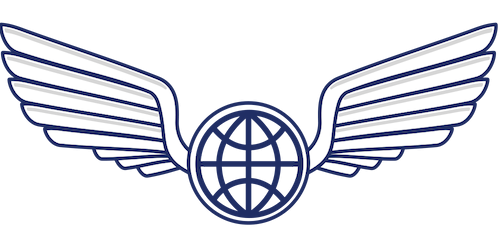
GO AHEAD DIVE IN!
TRIP INSURANCE
Covers losses incurred while travelling, such as medical, trip cancellations, lost luggage. Read fine print & get written confirmation.
There are a variety of travel insurance plans and options, they typically cover emergency medical coverage, evacuation, lost luggage, and trip cancellation. The best place to start finding a plan right for you is: www.squaremouth.com.
PASSPORT & VISA
Ensure your passport is valid. Have the correct amount of passport pages available and the correct visa.
Most countries will not put a visa on a page other than a visa page. If your passport expires within 6 months of your trip some countries will not allow you to enter. Every day, people are turned away because they don’t have the proper visa. Which means this “little mistake” could end up costing you thousands.
DOCUMENT COPIES
Better safe than sorry and make copies of all travel documents: passport, tickets, accommodation, activities and medical.
Most places will accept a copy of a reservation on a smartphone or laptop, it never hurts to have a hard copy. This way if you don’t have cell service or wifi, you don’t have to worry. Being prepared makes everything easier. Also email yourself any vital information.
BAGGAGE RESTRICTIONS
Each airline is different, make sure you review the carry-on and checked luggage restrictions.
Overweight baggage means your baggage weighs more than the “limit” that is allowed. Fees vary by airline and destination.
Oversize luggage refers to bags that are over the size limitations, items such as sports equipment and musical instruments etc.
TRAVEL WARNINGS
Every country will have a travel warnings and advisory, providing advice and warnings.
Find out whether “your country” has issued a travel warning, for countries where long-term issues create a risky environment for travelers, for countries with short-term conditions that may pose a threat to travelers, for your destination.
TRAVEL ALERTS
Notify you bank and credit cards of travel notifications.
In some countries – like most of Europe and Canada which is considered “safe” by your bank. However, as soon as you enter a “high risk” country you can forget using the card unless you have notified your bank, as you’ll quickly be shut down.
CHANGE BILLS TO AUTOPAY
Enroll in AutoPay for all your bills to avoid any disruptions.
If you set up your bills to autopay via online or by phone to automatically pay, then you don’t have to think about it while you are traveling. If this isn’t possible, then pay the bill early, before you leave.
TRAVEL APPLICATIONS
Taking a Vacation? Download These Apps Before You Go.
Gogo Entertainment: streams in-flight. Wi-Fi Map: free wi-fi finder.
Skyscanner: travel comparison site.
Google Translate: language translation.
Loungebuddy: escape noise/crowded airports.
WhatsApp: connect with family/friends via wifi.
XE Currency: converts currency on the go.
Accu Weather: real-time weather forecast.
TRAVEL EMERGENCY
Accidents happen, even on vacation. Be prepared for what life brings.
Make sure other people have your itinerary.
Only carry a copy of your passport.
Split debit/credit cards. Put money in your shoe.
Find local police stations and hospitals.
METAL IMPLANTS
Travelling with metal implants in the body, including joint replacements, plates, screws, and rods, can set off metal detectors at the airport.
Check with your physician about any concerns you have with the screening process. It’s not mandatory, but is recommended to have such documents, to simplify your screening at the airport, we recommend you present the documents to the screening officer when you arrive at the screening area.
REWARDS PROGRAM
Reward programs come in many forms, allowing you to accumulate “loyalty rewards” towards: gift cards, travel miles/points or cash back.
Collect “rewards” through everyday spending so you can get free flights, hotels etc to lower you travel costs.
Compare, due your research and ensure you spend wisely. Read the terms and conditions.
MEDICAL EMERGENCY
The truth is you can get sick anywhere. However with advanced preparation, falling ill overseas doesn’t have to spell disaster.
1. Bring a first aid kit.
2. Buy travel insurance.
3. Download the “American Red Cross” app.
4. List of primary doctor, prescriptions and pre-existing medical history.
